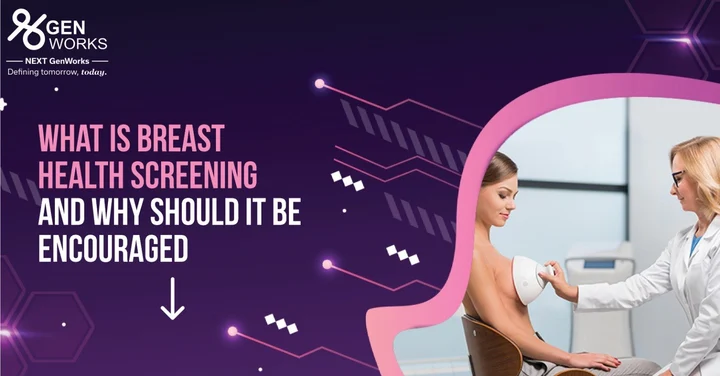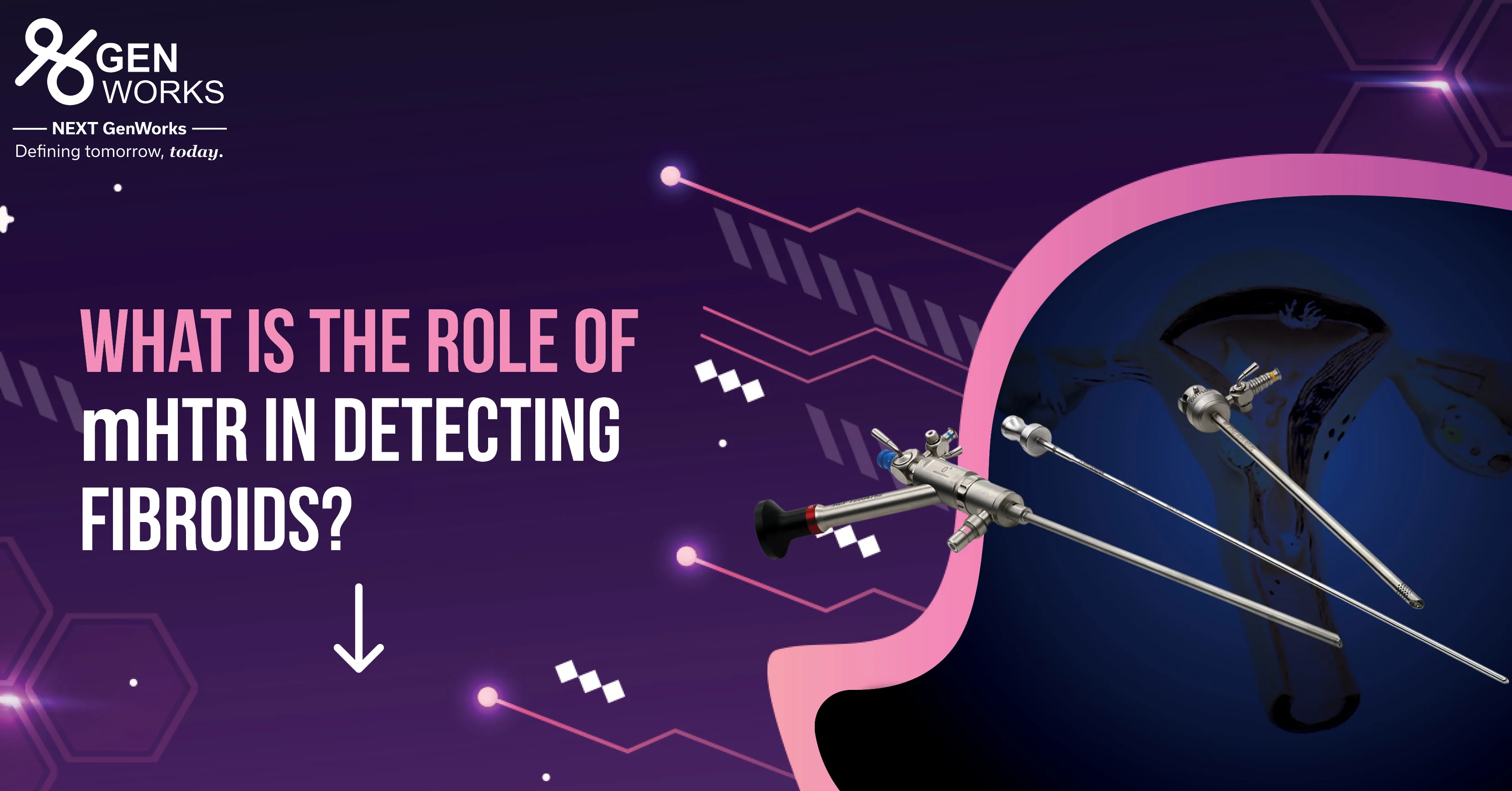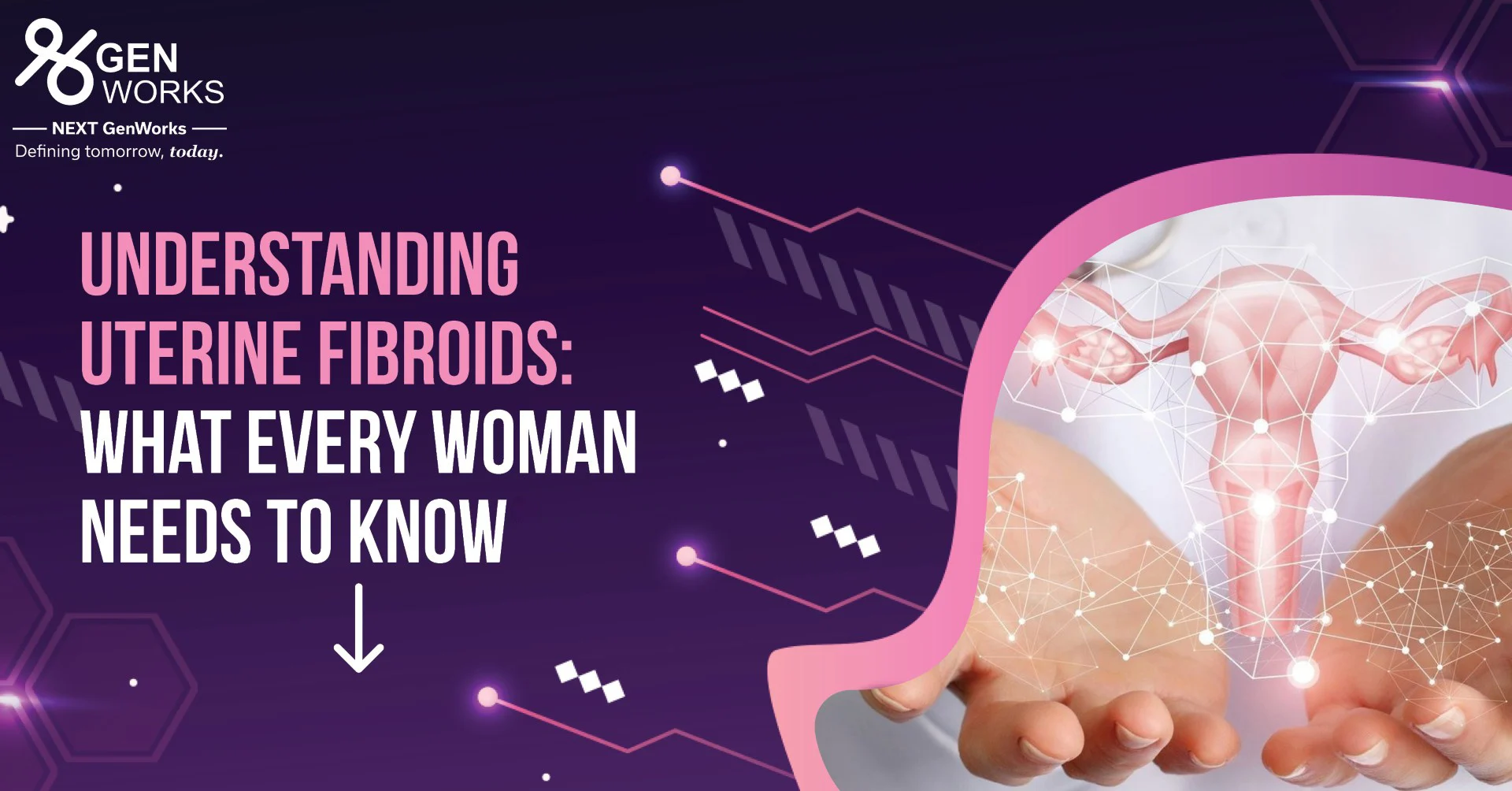What is Breast Health Screening and Why Should It Be Encouraged?

Breast cancer remains a significant health concern affecting millions of lives globally. It is the most common cancer in women in India. According to Breast Cancer India, one woman is diagnosed with breast cancer in India every 4 minutes. Although the advancements in screening technology have improved outcomes, patient compliance with regular screening remains a challenge.
Focusing on a multifaceted approach to nurture screening centered around the patient while enabling ease of access, trust, and the criticality of early screenings can work towards improving breast health screening rates and saving lives.
Breast health screening is a critical component of preventive healthcare aimed at detecting breast cancer or other abnormalities at an early stage when treatment is often more effective. It involves various methods such as using devices like Braster Pro for AI-Enabled Breast Health Screening.
Let’s see more about why breast health screening is important and why it should be encouraged.
Rise of Breast Cancer In India:
One of the most common types of Cancers in women, breast cancer accounts for over 14% of Cancer in Indian women. It is reported every few minutes and has been on the rise in urban and rural areas. The Globocon data 2020 estimates that breast cancer in India accounts for 13.5% of all Cancers and around 10.6% of all deaths.
To avoid women getting affected with cancer, they must get screened to detect the presence of lumps or masses that suggest cancerous growth. The reason for the low breast cancer survival rate of women in India is from lack of awareness and poor early screening and diagnosis rates.
What is Breast Health Screening?
The process of checking a woman’s breasts for cancer before there are signs or symptoms of breast cancer is called breast health screening. Screening tests for breast cancer sometimes indicate that cancer may be present and if that is there then a biopsy is done. On the other hand, having a false positive result means that a biopsy is not needed.
Educating patients about the importance of breast health screening is important for empowering them to engage in proactive breast healthcare. Providing clear information about the benefits of mammography and the potential outcomes of screenings can help in dispelling myths. Individualizing care is also very important.
Healthcare providers must focus on providing information and education about various risk factors for breast cancer including genetic history or having dense breast tissue that is critical to improving screening compliance.
Why Should Breast Health Screening Be Encouraged?
Breast cancer is one of the most common cancers globally, affecting millions of women each year. While significant progress has been made in treatment options and survival rates, early detection remains paramount in improving outcomes. Screening allows healthcare providers to identify abnormalities in breast tissue before symptoms manifest, enabling prompt intervention and potentially curative treatment.
The breast health screening done with devices like Braster Pro can detect small tumors that may not be palpable during a physical exam. This early detection increases the likelihood of successful treatment and reduces the risk of metastasis, which is associated with poorer prognosis.
Moreover, breast health screening can contribute to healthcare cost-effectiveness by identifying conditions at an early stage when they are generally less complex and less expensive to treat. The cost of treating advanced-stage breast cancer is significantly higher than that of early-stage disease due to the need for more aggressive therapies, prolonged hospital stays, and additional supportive care. By detecting cancer early, screening programs can potentially reduce the financial burden on healthcare systems and individuals, allowing resources to be allocated more efficiently.
Role of Advanced Medical Devices In Breast Health Screening:
Advanced medical devices support early diagnosis of problems such as Breast Cancer. The examination is performed by trained medical professionals and its functioning is also facilitated with a technological model.
Devices such as Braster Pro use an effective and confirmed method of detecting changes in the breast using the technology of liquid crystal contact thermography. Based on the thermographic images, the automated interpretation algorithms can show potentially dangerous changes and even common abnormalities in the breasts. The efficacy of using devices such as Braster Pro has been proven in many observational studies. The device is known to show over 81.5% sensitivity and over 87% specificity.
Empowering Health and Well-Being of Women With Breast Health Screening:
Other than the clinical benefits, encouraging breast health screening can also empower individuals to take an active role in their health and well-being. The beast examination in particular allows women to become familiar with their breast tissue and detect any small changes that can warrant further evaluation.
The use of devices such as Braster Pro can serve as an important complement by promoting awareness and early detection. Encouraging women to perform regular breast health examinations can help demystify breast health and foster a sense of agency over one's own body.
Furthermore, breast health screening plays a crucial role in addressing disparities in healthcare access and outcomes. Women from marginalised communities, including those from low-income backgrounds or ethnic minorities, often face barriers to healthcare such as limited access to screening services, cultural stigmas, and socioeconomic factors.
By promoting screening programs and providing outreach to underserved populations, companies like GenWorks Health have been consistently making efforts to reduce disparities in breast cancer outcomes and ensure that all women have equal access to preventive care.
Summing It Up:
Breast health screening is an extremely important part of preventive healthcare that can impact outcomes for women at risk of breast cancer. Encouraging timely screening before further diagnosis can help save lives, reduce healthcare costs, empower individuals, and address disparities in healthcare access and outcomes.
While multiple challenges exist, the benefits of early detection can easily outweigh the potential risks underscoring the importance of encouraging screening programs and ensuring equitable access to preventive care for women.




